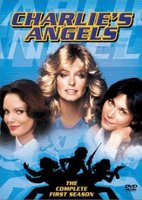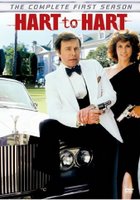Reared in one of the more decrepit corners of Dallas, Texas, Spelling joined the U.S. Army Air Corps during World War II, and after returning home, attended Southern Methodist University, where he composed and directed plays. Post-graduation, he sought acting jobs in New York and Los Angeles, appearing in episodes of Dragnet, Gunsmoke, and I Love Lucy.

 However, following his marriage (the second of three) to actress Carolyn Jones, who later played Morticia Addams in The Addams Family, Spelling began to make a bigger name for himself as a TV writer and producer. Teaming up with actor-producer Dick Powell, he created the series Burke’s Law (1963-1966), which starred the ever-suave Gene Barry as a wealthy LAPD chief of detectives who was chauffered between clue-packed crime scenes in a Rolls-Royce. A few years later, he scored big with The Mod Squad (1968-1973), a police drama featuring a racially mixed trio of “hip” young crime-fighters. Spelling went on to create some of the best-remembered crime shows of the 1970s and ’80s, including those mentioned before, as well as The Rookies, S.W.A.T., Matt Houston, and T.J. Hooker (1982-1985), the last of which starred William Shatner and a seductive young Heather Locklear as street cops. Over this last decade, he was behind both the regrettably short-lived Buddy Faro (1998, starring Dennis Farina) and Kingpin, a 2003 dramatic mini-series about Mexican drug-traffickers.
However, following his marriage (the second of three) to actress Carolyn Jones, who later played Morticia Addams in The Addams Family, Spelling began to make a bigger name for himself as a TV writer and producer. Teaming up with actor-producer Dick Powell, he created the series Burke’s Law (1963-1966), which starred the ever-suave Gene Barry as a wealthy LAPD chief of detectives who was chauffered between clue-packed crime scenes in a Rolls-Royce. A few years later, he scored big with The Mod Squad (1968-1973), a police drama featuring a racially mixed trio of “hip” young crime-fighters. Spelling went on to create some of the best-remembered crime shows of the 1970s and ’80s, including those mentioned before, as well as The Rookies, S.W.A.T., Matt Houston, and T.J. Hooker (1982-1985), the last of which starred William Shatner and a seductive young Heather Locklear as street cops. Over this last decade, he was behind both the regrettably short-lived Buddy Faro (1998, starring Dennis Farina) and Kingpin, a 2003 dramatic mini-series about Mexican drug-traffickers.He was responsible, too, for a wide range of non-crime serials, such as Dynasty, The Love Boat, Fantasy Island, Hotel, Beverly Hills 90210, Melrose Place, Charmed, and 7th Heaven. As every obituary of this writer-producer seems to note, there was a time during the ’70s when Spelling had so many series running on the ABC-TV network, that folks joked about its initials standing for “Aaron’s Broadcasting Company.”
Chided for having introduced “jiggle TV” (a reference to the skimpy attire and deliberate sexual objectifying of Charlie’s Angels), Spelling sought to counter his low-brow reputation with a few TV series and movies-of-the-week that boasted greater social merit. He won Emmy Awards for both Day One (1981), about the dawn of nuclear warfare, and the AIDS-related movie And the Band Played On (1993). Spelling was also behind Family, a 1976-1980 drama series that built around particularly topical issues, such as breast cancer, teen sex, and alcoholism. But it seemed inevitably to be his cheesier, commercial ventures that made him the most money--enough to build the largest single-family home in California, a $12 million, 123-room mansion in Los Angeles’ Holmby Hills, complete with bowling alley, swimming pool, gymnasium, tennis court, screening room, and a quartet of two-car garages. And, much to his dismay, those projects rarely stirred the admiration of critics. “There is good and there is bad Spelling,” the Los Angeles Times Magazine proclaimed in 1996, “but there is never great Spelling, only degrees of terribleness.”
Not exactly the sort of inscription a guy wants forever plastered on his frickin’ headstone.
READ MORE: “TV Mogul Spun Fluff Into Gold,” by Brian Lowry (Los Angeles Times); “Aaron Spelling, 83; Prolific TV Hit Maker,” by Adam Bernstein (The Washington Post); “Aaron Spelling, Prolific TV Producer, Dies at 83,” by Bill Carter (The New York Times).

















No comments:
Post a Comment